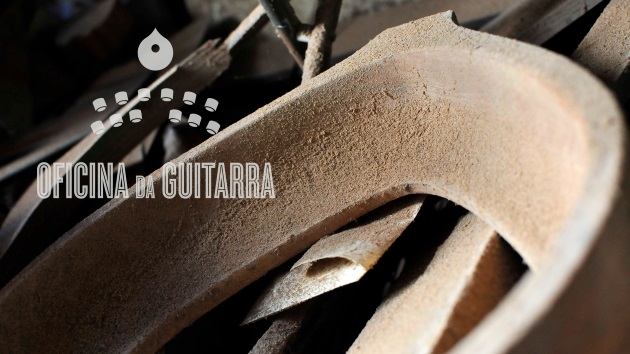17 April, 2019
Guitar Workshop

On the coming 23 April the Lisbon City Council and EGEAC launch the Fado Museum Workshop on Guitar Building, which pays tribute to two major Traditional Schools in the Art of Portuguese Guitar Building: that of Gilberto Grácio and of Óscar Cardoso.
Building workshops, projection of films, consultations stands on guitar builders and guitarists, and also an area where guitars and accessories for the Portuguese Guitar can be bought are all available at this Workshop. The Course on Guitar Building (in portuguese) will start in the 2019/2020 academic year and, between May and September, the Workshop will have a regular programme of classes and workshops on the different stages involved in building a Portuguese guitar. It is also possible for the public to visit the guitar Workshop by way of advance booking through the contacts of the Fado Museum.
SAFEGUARDING THE HERITAGE – PROGRAMME APPROVED BY UNESCO
Included in the strategic programme of Fado’s Candidacy to the Representative List of the Intangible Cultural Heritage of Humanity approved by UNESCO, the Guitar Workshop serves as a centre for the revival and safeguard of this heritage, by promoting the art of guitar building, the transfer of knowledge to new generations, the interpretation, study and enjoyment of this art by the public at large and by the circle of researchers in particular.
The educational fraction of the Workshop will also favour the learning of the History of the Instrument and training around the elements that comprise the Portuguese guitar, with specialised workshops on the building of fan heads, carving volutes, conservation and repair, and many other areas. The body of teachers will comprise guitar builders, guitar players, carvers, conservation and repair technicians, musicians and researchers.
Gilberto Grácio, Óscar Cardoso, Pedro Caldeira Cabral and Rita Marcelino (the only female Portuguese guitar fan head builder, daughter of Fernando Silva, mestre Fanã) are among some of the trainers of the classes and workshops that the Workshop will hold until September.

RETURN OF ONE OF THE MOST TRADITIONAL CRAFTS OF PORTUGUESE CULTURE TO LISBON’S HISTORIC CENTRE
In the history of entirely handmade Portuguese guitar building, there are two families of guitar builders who improved and transferred their art from one generation to another.
One started with João Pedro Grácio, grandfather of Gilberto Grácio and patriarch of a great family of guitar builders (five of his 12 children were guitar builders) who established his workshop at Largo de São Martinho, Limoeiro, in Alfama. The permanent dialogue between this workshop and the guitarists who preferred it, such as Armando Freire, Artur Paredes, Carlos Paredes and José Nunes, was fundamental for the technical and acoustic evolution of the instrument.
Another great family of guitar builders started by Álvaro da Silveira and continued by Manuel Cardoso, father of Óscar Cardoso. Álvaro da Silveira, born in Funchal, learned this art in his birthplace with the violin builder Augusto M. da Costa. He moved to Lisbon at the age of 20, specialised in guitar building and became the manager of the Workshop on Rua da Boavista. Later, he set up shop for himself at Travessa dos Inglesinhos in Bairro Alto until he eventually moved in the 1960s to his house and workshop at Beco de São Lázaro.
The Fado Museum Guitar Workshop also represents the return of this craft – one of the most traditional Portuguese crafts – to the capital’s historic centre.
If the ancestors of Gilberto Grácio and Óscar Cardoso opened workshops in the centre of Lisbon in the first half of the 20th century, now in the 21st century, the teaching of this art returns to the capital’s historic centre, to permanently remain here.